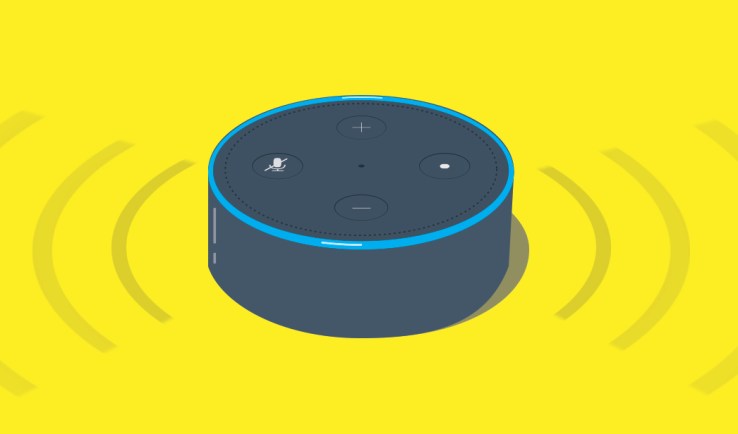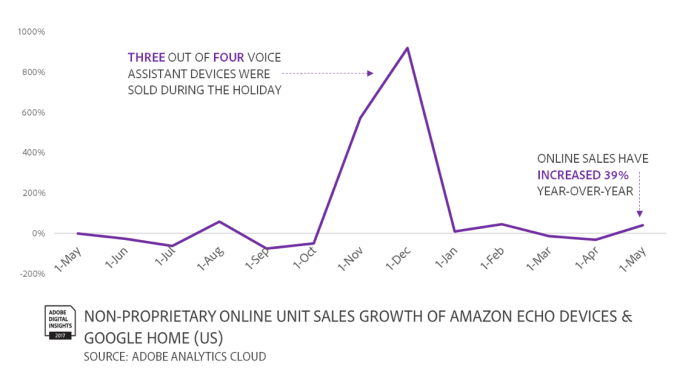
In the nascent connected speaker market, consumers appear to be gravitating towards the more affordably priced Amazon’s Echo Dot, according to new e-commerce sales data[1] released this morning by Adobe. However, Google’s decision to release its Echo competitor, Google Home, in November paid off well, the study found. During the 2016 holidays, Google Home was able to outsell both Amazon Echo and Echo Dot, before losing ground to the Dot in the first quarter of this year.
Overall, Adobe’s report paints a picture of a respectable market for voice devices, but one it says is “not massive” yet, adding that the devices are “not quite a household item.”
However, it is one that’s steadily growing. Online sales grew 39% year-over-year, says Adobe. And the devices were especially popular gifts during the holidays – 3 out of 4 voice devices were sold during that period.

Adobe’s findings for this report were based on an analysis of 14.3 billion visits to online retailers from May 2016 to May 2017, measured by Adobe Analytics Cloud[2], as well as 14.5 million social mentions around voice assistants and voice assistant devices, tracked by Adobe Marketing Cloud[3].
The company doesn’t disclose its online retailer customers by name, but it does have deep visibility into the market, as $7.50 of every $10 spent online with the top 500 U.S. retailers goes through its Analytics Cloud platform. It also tracks 80% of all transactions from the top 100 U.S. retailers, through its Analytics Cloud.
However, this data doesn’t paint a complete picture of the market for smart speakers, because it’s tracking online retail sales that are taking place outside of Amazon and Google’s own storefronts. Clearly, those sites...